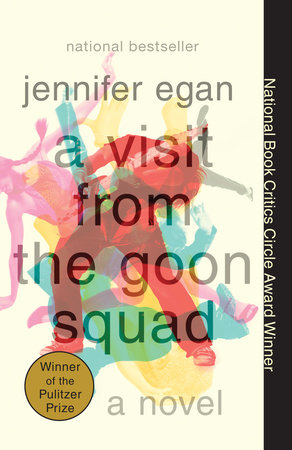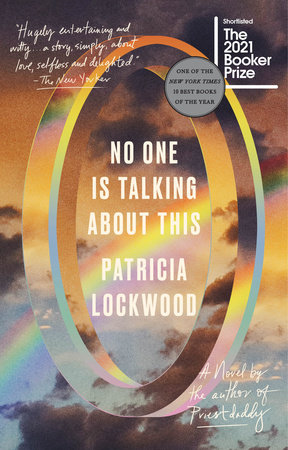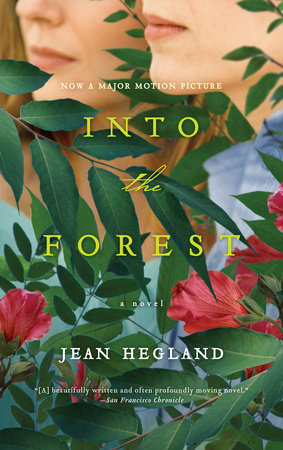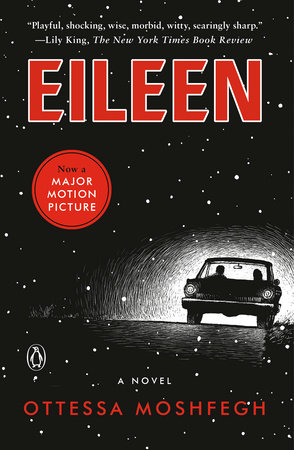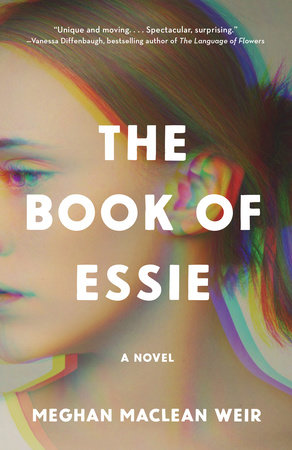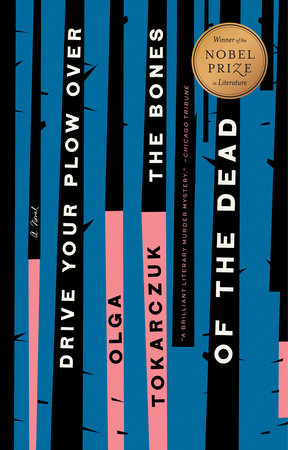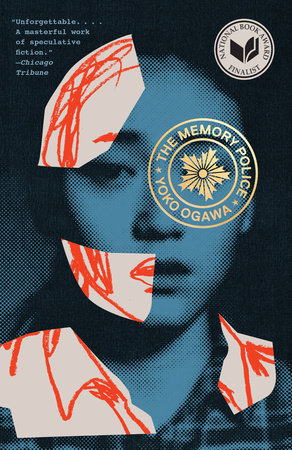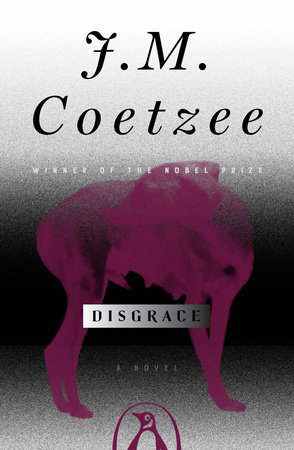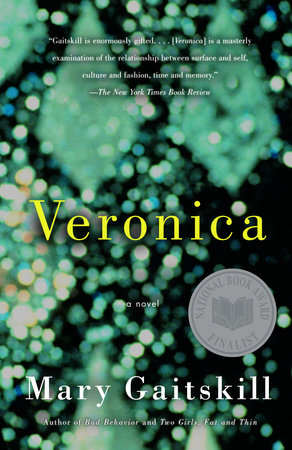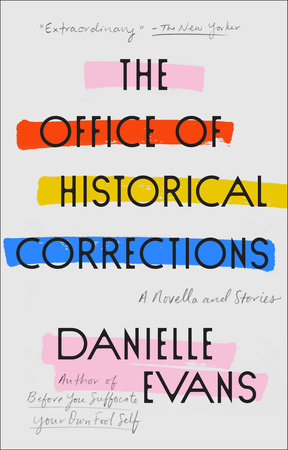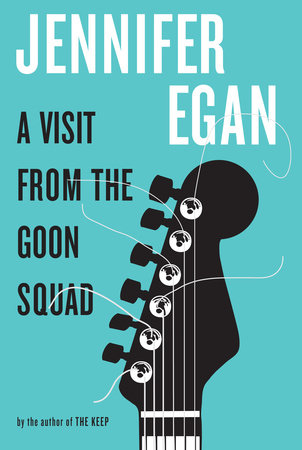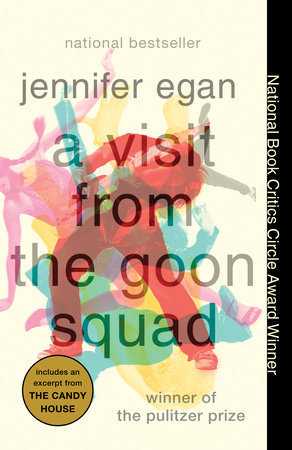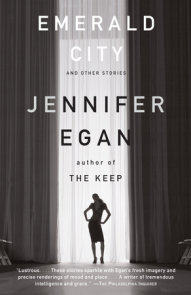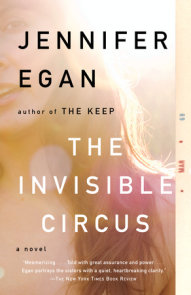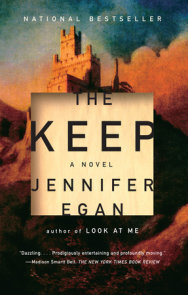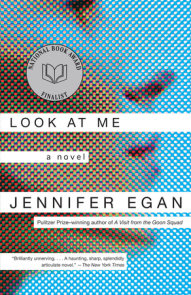Author Q&A
Q: Ok so tell us, what exactly constitutes a “visit from the goon squad”?
A: I knew the title of this book before I knew almost anything else. So I, too, entered the project in a state of wondering who the Goon Squad was, exactly. In addition to Proust, whose In Search of Lost Time I was working my way through as I wrote Goon Squad, my other primary literary (if you will) influence was The Sopranos, whose polyphonic structure I found deeply compelling. So I guess you might say that there are goons in my book’s genome. The book is certainly full of people who feel beaten up in one way or another—disappointed, out of luck, gypped of what they once expected and still feel they deserve—but these hardships aren’t the work of particular enemies so much as life’s vicissitudes. Without giving anything away, I’ll say that the reader’s understanding of who the real goon is accrues over the course of the book in much the way that my own comprehension of life’s extreme brevity has overtaken me as I’ve pushed into my forties. And that’s all I’m going to say!
Q: In the thirteen chapters in this book we meet a large cast of characters and come to see, chapter by chapter, how all of their lives are connected, and often entangled, in surprising ways. Where did you get the idea to have their stories unfold in this way?
A: It happened organically, and I was led by little more than my own curiosity. I started with “Found Objects,” the first chapter in the book, and found myself intrigued by the the brief mention of Bennie Salazar, who sprinkles gold in his coffee and sprays pesticide in his armpits. I thought: Why would someone do those things? And from that question came the next piece, “The Gold Cure.” In that one, there’s a mention of Bennie’s ex-wife, Stephanie, who plays tennis at a country club. And I thought: Hmm, what’s Stephanie’s story, and how did her marriage to Bennie end? So I wrote “A to B.” Small, lateral observations in a character’s life would catch my eye much as they do in my own: I’m forever watching people and wondering: Who is that person? Where is she going right now? What does his apartment look like? What expression does he have when he’s completely alone? And of course, there’s no way to answer those questions without violating people’s privacy! But in fiction, I can go anywhere I want.
Things really got interesting when the new pieces I was working on began to extend their tentacles to a few pieces I had already written. One of those was “Goodbye, My Love,” which I wrote in the late nineties in almost exactly the form it takes in the book. I was standing in the shower one night (the site of many of my inspirations for Goon Squad, for some reason) when I suddenly realized that Sasha, the thief in “Found Objects,” is the same person, years later, as the runaway in “Goodbye My Love.” They had the same history—no father—and both protagonists had even stolen a wallet! And yet it wasn’t until that shower that I saw the connection.
Q: It seems that Bennie, former punk rocker turned music industry executive and Sasha, his assistant, are the two people around whose lives most of the other people in this book connect. Yet Bennie and Sasha know very little of each other’s pasts or, as things unfold, futures. Can you talk a little about how they anchor the book?
A: I think that what interested me about the Bennie-Sasha relationship is that it’s coincidental: they’re ten years apart in age, with completely diverse pasts and present-day lives, yet they’re thrown together by circumstance (Sasha works for Bennie) and form a strong bond that is, in its way, deeply intimate for a time. So many relationships are like that—dictated mostly by chance, yet meaningful on their own limited terms—but I don’t feel like I read much about those relationships. So I began with that intersection of Bennie and Sasha, and followed it as it fanned out into each of their private lives and then their pasts and futures, and then the private lives and pasts and futures of some other people connected to each of them. It was an instinctive unfolding, with Bennie and Sasha as its starting and endpoint.
Q: There are so many wonderful people in this book. Are there any you are particularly fond of or had an especially good (or especially difficult) time writing about?
A: I had a ball writing about many of these folks. The pieces I enjoyed working on most were probably those that commingle absurdity with logic; “Selling the General,” for example, in which a disgraced publicist is hired to rehabilitate the reputation of a genocidal dictator in an unspecified thirdworld country, or the part of “A to B,” when the ailing rock star unveils his plan for a publicity/suicide tour. In general my comfort zone is as far away as possible from my own life, so I tend to have more fun writing from a male point of view, for example, than from one more reminiscent of my own, like the teenage female narrator of “Ask Me if I Care.” The hardest character to write was probably Lou, Bennie’s mentor—a selfish man who wreaks havoc in many people’s lives, including those of his children. As always with such a character, the challenge is to make sure he’s compelling and complex—not simply alienating—and there’s often some trial and error before I manage to strike that balance.
Q: You have said you are interested in the role of chance and time in people’s lives. How big a role do you think chance actually plays in most people’s lives?
A: Well, an enormous one—starting with the circumstances we’re born into. Beyond that, chance probably has the most impact on lives that are relatively privileged: one needs to have some choices, and some physical mobility, to be available to a wide array of chance occurrences. Presuming that one has the luxury of getting some education, choosing a job, picking a partner, etc.—I think that many lives play out as a counterpoint between random elements of chance and the gravitational pull of what we already know, and have come from.
Q: Music is a huge part of A Visit from the Goon Squad. Why did you decide to make music so significant and do you think it is fair to say that in one way or another it is what connects every character in the book?
A: Yes, I think that’s fair to say. And given that my obsession in Goon Squad is time and its workings, I guess it’s no surprise that I ended up writing about music (which also plays an enormous part in Proust’s novel), because the interaction between time and music is so complex. In one sense, music is timeless—it transports us instantly back to periods of our lives that are long gone, and makes us feel like we’re fully back in their midst. Yet in a cultural sense, music marks the passage of time like almost nothing else; the music of the sixties counterculture or the eighties punk rock scene will never be new again, much as we might still enjoy it—in fact, it’s an indelible reminder that the cultural movements that produced it are ancient history. And finally, all of my books are in some sense investigations of the evolution of technology and its impact on people’s lives. This time, the music industry—so ravaged by digitization—became another lens through which to look, even peripherally, at some ramifications of technological change.
Q: You capture the music industry so well, from the early punk rock scene of nineteen-seventies San Francisco, populated by bands like Flipper and The Damned, to a current day boardroom meeting where Bennie actually serves cow patties to his board members as a metaphor for the shit they are forcing him to serve to the public. How do you know this world so well?
A: The truth is, I only know it well as a consumer. I’ve always wanted to dig my way into the music industry somehow, and have tried more than once to pursue nonfiction stories in that realm (at one point I was supposed to write for the New York Times Magazine about a pair of identical twin female rappers who became the basis for the Stop/Go sisters in “The Gold Cure”). I guess that my yen to be a music industry insider in some ways motivated Goon Squad, but any expertise I might seem to possess is purely the product of research; I read a few books and talked at great length, more than once, with an extremely helpful music producer/mixer. The one part of the industry that I do know, though, is what it feels like to be a teen who hopes music will transform or subsume her. Although I haven’t been to a rock concert in years, that’s a feeling I’ll never forget, and enjoyed tapping into again.
Q: There is a chapter in this book called “Great Rock & Roll Pauses” which is an intriguing concept in and of itself but on top of that, it’s written in the form of a PowerPoint presentation! So, first, what is a great rock and roll pause? And what inspired this chapter in this particular form?
A: I’m not sure that the term “rock & roll pause” is generally used, but I got the idea from a book by Jacob Slichter, the drummer of a band called Semisonic. Semisonic’s most famous song, “Closing Time,” contains what Slichter calls a “Clearmountain pause,” named after Bob Clearmountain, who produced and mixed the song, and is apparently known for inserting pauses into the music he works on. I can’t say exactly why the idea of musical pauses caught hold of me, but it did. On a separate track, I’d also become obsessed with the idea of writing a story in PowerPoint—a program I did not own and had never used. I remember exactly when that idea came to me: I was reading an article about the Obama campaign’s turnaround two summers ago, and it mentioned that a particular PowerPoint presentation about the campaign’s shortcomings had led to a successful strategy shift. The fact that the presentation in question wasn’t referred to as a “paper,” or a “document” or a “memo,” but as a “PowerPoint,” really struck me. I thought: PowerPoint has become a literary genre; I’d love to write a story in it. This proved to be a long and convoluted process; I’d thought I could somehow do it without actually buying PowerPoint (it’s expensive!), and when I finally did spring for it, I found it incredibly limiting and hard to use. I attempted a story that failed, and assumed that would be the end of it. But having bought PowerPoint, I was finally able to open and read other people’s PowerPoint’s, and as with any genre, reading in it was ultimately inspiring.
After I had sold Goon Squad, which I (and my publisher) considered to be complete, I had a brainwave about how to combine rock & roll pauses and PowerPoint into a narrative written by a 12-year old girl in the future, as part of her journal. I became absolutely consumed with the project of writing that PowerPoint. It was one of the hardest things I’ve ever done—I write fiction in longhand, so just staring at a computer screen for a many hours made my brain ache—but I was finally able to make something happen.
Q: It seems the idea of the pause is very much at work in your book—in the spaces between when people last met or between who they once were (as one of your characters says pre-marriage, pre-parenthood, pre-money, pre-hard drug renunciation, pre-responsibility of any kind) and who they are now. What intrigues you about the pause?
A: You’re right, the book is all about pauses. Unconsciously, I think this must be what intrigued me about the idea of pauses in songs when I first encountered it. Let’s face it—human life is a pause. It’s tiny, and in the larger scheme it hardly registers against the mysterious magnitude of what precedes and follows it. But it’s all we’ve got, and it’s sweet and bitter and powerful. This is what Jules ends up saying in “A to B,” when he tells his sister, “Yes, everything is ending. But not yet.” In retrospect, I think I wanted to design a book that consciously occupied and explored that very small, yet vividly powerful, “not yet.”
Q: A Visit from the Goon Squad covers a wide geographical sweep. While much of the action takes place in New York City and San Francisco, you also take readers to Africa, to Italy, to a secret compound inhabited by a third world dictator. How important is setting in your fiction?
A: I don’t want to sound over-dramatic, but for me, setting (with its component parts of mood and atmosphere) is literally everything. Without it, I can’t begin, and often a setting is all I have when I do. This was true of virtually every piece in Goon Squad; in “Found Objects,” all I had going in was the feel of that hotel bathroom, with the wallet in plain view. I didn’t know who was seeing it, or what she would do, or why. In “Goodbye My Love,” I was moved by the grand decrepitude of Naples, with its decaying palazzi and multitude of street thieves. Even in “Great Rock and Roll Pauses,” for all my interest in both pauses and PowerPoint, my entry to the story was the feeling of the California desert at night. In almost every case, I began with a place, or even an atmosphere that precedes place, and out of that came people, and events, and eventually a story. It’s been this way with all of my fiction, from the very beginning.
Q: Bennie gets a surprise visit from one of his former band mates Scotty Hausmann, once the young star but now a down and out part-time custodial worker for the city. Scotty says to Bennie, “I came for this reason . . . I want to know what happened between A and B.” Tell us about this idea of A to B as you actually divide the book into two parts titled A and B, what is different about the lives we see in each of those sections?
A: Well, “A” and ”B” mean a lot of things in this book. First, I conceived of this book not as a novel or a story collection, but as an LP: a narrative that unfolds in segments that contrast a great deal with one another, but contain a range of styles and tell a story over time. Like any LP, it has an A side and a B side, organized on the same principles of evolution and contrast. In our era of atomized song-buying, the LP is not just a physical relic, but a conceptual one—which is partly why I wanted to honor and exploit it as a structural model in this book. But given that the book’s subject, to a large extent, is change over time, “A to B” is also a kind of shorthand for that change. If Goon Squad is about pauses, then “A to B” is the space inside of which the pauses takes place.
Q: “Pure Language,” the last chapter in the book, takes place in a futuristic Manhattan where babies use handsets; the media world has survived something called the “Bloggescandals”; one character is writing a dissertation on the phenomenon of “word casing,” a term for words that no longer have meaning outside quotation marks; the use of devices for communication leads someone to describe another person as someone who “lived in his pocket.” What inspired this chapter? Are you nervous about the future of language?
A: I think we all are; it’s impossible to contemplate the speed of technological change, and the magnitude of the economic and cultural and environmental impact of those changes, without getting nervous about where the hell we’re going to find ourselves in twenty years—much less two hundred. So yes, I’m nervous. But more immediately (maybe this is why I’m a writer), I’m fascinated, and curious. I can’t help imagining forward. There may be something apotropaic about these imaginings—a hope that conceiving of a water wall protecting Manhattan from its rivers means that there won’t ever actually be one. But what I often end up feeling, even as I experience vertigo at the thought of the future—is that human beings are immensely resourceful, and capable of great beauty and genius, and that language and inner life will survive and even thrive because of those qualities, whatever threats they may face.
Q: I don’t want to give anything away about the ending of A Visit from the Goon Squad but it really seems to suggest that music (and the music industry) throughout the book has in many ways been used as a metaphor for language. Is that so? Can you talk about this connection between music and language?
A: I think that’s right. The point of connection between music and language is that both are deep and basic forms of human expression. At the moment, they both feel imperiled, from a business standpoint (will there still be publishing or a music industry in the future?) and, more ominously, from a creative standpoint (will language and literary creation be debased by texting shorthand and the plagiaristic ‘sampling’ mentality of Web culture, as the music industry has been?) Culturally and humanistically, these are vast, gaping questions. I think that, finally, “Pure Language”—and in some sense all of A Visit from the Goon Squad—is my attempt to answer them.
